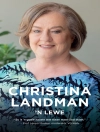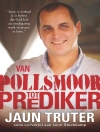All athletes experience setbacks. But to have your limbs – the very tools you use to practice your sport – taken away by an illness at a young age is a setback that many would never overcome.
Bebe Vio never gave up her dream of becoming a fencer, despite having her arms and legs amputated when she was eleven years old after suffering from fulminant meningitis.
Instead of abandoning her dream of going to the Olympics, she began training for the Paralympics from a wheelchair. Her unwavering determination to win, despite her physical challenges, made her a world champion fencer. She also established her own association, art4sport, to encourage other people to pursue the beauty of life through sport.
This is the seventh essay in the Big Ideas series created by the European Investment Bank.
About the author
About the European Investment Bank
The European Investment Bank is the world's biggest multilateral lender. The only bank owned by and representing the interests of the EU countries, the EIB finances Europe's economic growth. Over six decades the Bank has backed start-ups like Skype and massive schemes like the Øresund Bridge linking Sweden and Denmark. Headquartered in Luxembourg, the EIB Group includes the European Investment Fund, a specialist financer of small and medium-sized enterprises.












